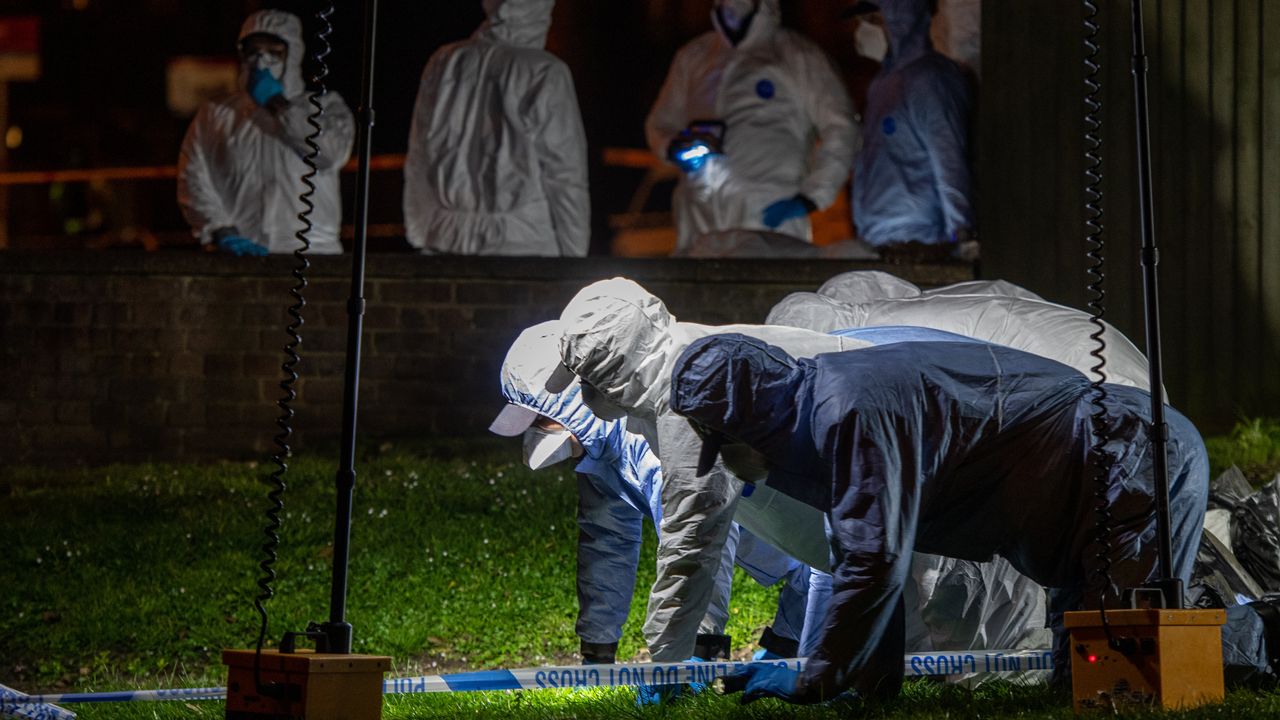Government’s ‘violence against women and girls’ strategy explained
A woman is murdered by a man every three days in UK, according to tracking charity

A nationwide vigil highlighting women’s safety issues is being organised following the disappearance of Sarah Everard in south London last week.
After as-yet unidentified human remains were found yesterday in a wood in Kent, the “Reclaim These Streets” organisers said the event was “for Sarah, but also for all women who feel unsafe, who go missing from our streets and who face violence every day”.
The 33-year-old’s disappearance has renewed debate about the endemic abuse as the government prepares its latest “violence against women and girls” strategy. Here is what we know about the plans.
Subscribe to The Week
Escape your echo chamber. Get the facts behind the news, plus analysis from multiple perspectives.

Sign up for The Week's Free Newsletters
From our morning news briefing to a weekly Good News Newsletter, get the best of The Week delivered directly to your inbox.
From our morning news briefing to a weekly Good News Newsletter, get the best of The Week delivered directly to your inbox.
‘One woman every three days’
The arrest of a serving Metropolitan police officer in connection with Everard’s disappearance prompted thousands of women to share their experiences of harassment and assault, using the hashtag #SarahEverard.
Amid the outpouring of testimonies, Sky News political correspondent Kate McCann tweets that “what happened to Sarah Everard has hit home hard for so many women because we make the calculations she did every day too”.
“It is frustrating and tiring and constant. And yet sometimes, despite all those calculations, it still isn’t enough,” she adds.
The extent and seriousness of the problem is revealed by data from the Femicide Census, a charity that tracks the number of women killed by men in the UK. A total of 1,425 women have been murdered over the past decade - an average of one woman every three days.
The findings of a recent YouGov survey of more than 1,000 women reveals that other forms of abuse are also widespread.
A total of 97% of respondents aged between 18 and 24 have been the victim of sexual harassment, according to the findings of the poll, which was conducted on behalf of United Nations organisation UN Women UK and shared with The Guardian.
Four in five women of all ages said they had experienced sexual harassment in public spaces.
The survey also exposed what the newspaper describes as “a damning lack of faith in the UK authorities’ desire and ability to deal with sexual harassment”, with 96% of respondents saying they did not report the incidents and 45% saying it would not change anything.
UN Women UK executive director Claire Barnett said the results of the survey revealed “a human rights crisis”, adding: “It’s just not enough for us to keep saying ‘this is too difficult a problem for us to solve’ - it needs addressing now.”
Calls for action have been growing since the victims’ commissioner for England and Wales warned in a report published last summer that rape prosecution rates in the UK have reached a “catastrophic” low.
Vera Baird QC said that the crime had effectively been “decriminalised”, with “just 3% of rape complaints” resulting in criminal charges. Police in England and Wales referred 2,747 rape cases to the Crown Prosecution Service in 2019-20 - the lowest total since the records began in 2014.
Domestic abuse has also increased significantly since lockdown restrictions were imposed in March last year. The Femicide Census found that domestic homicide rates were three times higher than usual during the initial few weeks of the first national lockdown.
What’s the government’s plan?
The government last month finished gathering evidence for its latest Tackling Violence Against Women and Girls (VAWG) Strategy, which is due to be released later this year. A total of £100m of funding has been committed to support abuse victims since the programme launched in 2010.
Government officials are consulting with women and girls who have experienced gender-based violence, as well as members of local government; experts who work with survivors and social care; the education sector; and law enforcement professionals.
Downing Street has said that under VAWG initiatives, new measures have been introduced to tackle crimes including stalking, rape, so-called “honour violence” and female genital mutilation.
However, Home Secretary Priti Patel has conceded that more needs to be done - and quickly. In the forward to the latest call for evidence, she writes that while the “risks of violence against women and girls are still present, the pace of societal and technological change means that new and evolving forms of crime against women and girls are continuously emerging”.
The updated strategy for 2021 to 2024 will aim to improve understanding of newer forms of violent crimes against women and girls such as cyber flashing and online abuse via dating apps and social media.
A separate domestic abuse strategy will also be launched after the passing of the Domestic Abuse Bill, which is expected to become law later this month.
Sign up for Today's Best Articles in your inbox
A free daily email with the biggest news stories of the day – and the best features from TheWeek.com
Sorcha Bradley is a writer at The Week and a regular on “The Week Unwrapped” podcast. She worked at The Week magazine for a year and a half before taking up her current role with the digital team, where she mostly covers UK current affairs and politics. Before joining The Week, Sorcha worked at slow-news start-up Tortoise Media. She has also written for Sky News, The Sunday Times, the London Evening Standard and Grazia magazine, among other publications. She has a master’s in newspaper journalism from City, University of London, where she specialised in political journalism.
-
 Will auto safety be diminished in Trump's second administration?
Will auto safety be diminished in Trump's second administration?Today's Big Question The president-elect has reportedly considered scrapping a mandatory crash-reporting rule
By Justin Klawans, The Week US Published
-
 One great cookbook: 'A Girl and Her Greens' by April Bloomfield
One great cookbook: 'A Girl and Her Greens' by April BloomfieldThe Week Recommends Vegetables deserve the best. In this chef-author's hands, they achieve their ultimate potential.
By Scott Hocker, The Week US Published
-
 DeSantis appoints Florida's top lawyer to US Senate
DeSantis appoints Florida's top lawyer to US SenateSpeed Read The state's attorney general, Ashley Moody, will replace Sen. Marco Rubio in the Senate
By Rafi Schwartz, The Week US Published
-
 The manosphere: the shady online network of masculinists
The manosphere: the shady online network of masculinistsThe Explainer A new police report said a rise in radicalised young men is contributing to an increase in violence against women and girls
By Richard Windsor, The Week UK Published
-
 Irish flight attendant breaks silence after 'distressing' Dubai charges dropped
Irish flight attendant breaks silence after 'distressing' Dubai charges droppedSpeed Read Tori Towey was charged with attempted suicide and consuming alcohol after being attacked in her home
By Julia O'Driscoll, The Week UK Published
-
 Scotland Yard, Gaza and the politics of policing protests
Scotland Yard, Gaza and the politics of policing protestsTalking Point Met Police accused of 'two-tier policing' by former home secretary as new footage emerges of latest flashpoint
By The Week UK Published
-
 Can the Met Police heal its relationship with the Black community?
Can the Met Police heal its relationship with the Black community?In depth Police chiefs accused of not doing enough to address reported institutional racism
By Richard Windsor, The Week UK Published
-
 Why police are downing firearms after the Chris Kaba murder charge
Why police are downing firearms after the Chris Kaba murder chargeThe Explainer Army drafted in after scores of armed Met officers 'revolt' over charging of colleague
By The Week Staff Published
-
 Met Police clean-up: more than 1,000 officers suspended or on restricted duties
Met Police clean-up: more than 1,000 officers suspended or on restricted duties'Eye-watering' figures show scale of challenge to restore public trust
By Harriet Marsden Published
-
 New suspect named in Stephen Lawrence case 30 years on
New suspect named in Stephen Lawrence case 30 years onSpeed Read Baroness Lawrence calls for ‘serious sanctions’ against officers who failed to investigate Matthew White
By The Week Staff Published
-
 How did Met Police officer David Carrick get away with it for so long?
How did Met Police officer David Carrick get away with it for so long?Today's Big Question Failure to stop one of Britain’s most prolific rapists linked to ‘toxic culture of misogyny’ at force
By The Week Staff Published